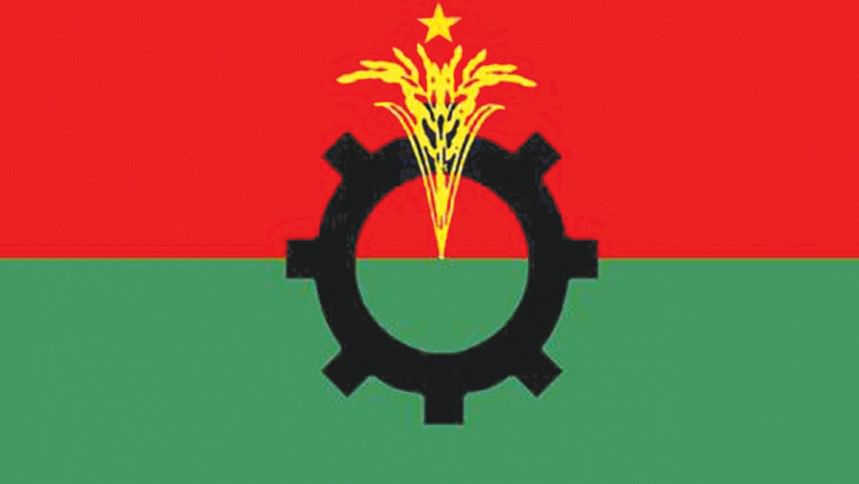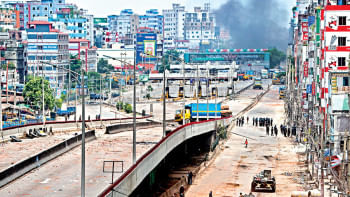BNP agrees to 10yr PM cap, objects to NCC

In a major shift in its stance, the BNP has agreed to a proposal to cap an individual's tenure as prime minister to a maximum of 10 years in a lifetime.
Party leaders said the decision was made to improve the BNP's image ahead of the next general election, as sticking to the previous stance was drawing criticisms.
However, the BNP remains firmly opposed to another key proposal -- forming a National Constitutional Council to oversee appointments to constitutional bodies such as the Election Commission and Anti-Corruption Commission.
The proposal aims to curb unilateral executive authority and ensure institutional checks and balances. But BNP leaders fear such a council would strip the prime minister of crucial powers.
"It is our national responsibility to stop the path to creating fascists, both constitutionally and in parliamentary practice. From that responsibility, we embrace this expectation of the nation."
The party's Standing Committee discussed the matters at a meeting on Tuesday night at the BNP chairperson's Gulshan office, with acting chairman Tarique Rahman joining virtually from London.
Committee member Salahuddin Ahmed presented a report on the party's ongoing reform talks with the National Consensus Commission. All members present supported the change in stance, meeting sources said.
"It is our national duty to stop the path to creating fascists, both constitutionally and in parliamentary practice. From that responsibility, we embrace this expectation of the nation. That is why we have accepted the proposal that no one can remain Prime Minister for more than 10 years," Salahuddin said.
Explaining his proposal, he said there is confusion about what constitutes a term as someone might serve a partial term that even don't add up to a year.
"That's why I proposed that we focus on the maximum number of years a person can serve as prime minister. Only then will it become a proper limit," Salahuddin added.
Party insiders said the BNP believes that its objection to limiting the PM's term was hurting its image and giving its political rivals an upper hand for further criticism.
They said the party feared that clinging to its earlier stance could erode public support at the ballot box.
A standing committee member who preferred anonymity told The Daily Star, "Public perception is very important. By disagreeing with this proposal, we were creating doubts in voters' minds. Even the Jamaat was using it against us."
Still, the party remains cautious about the proposal to establish a constitutional council. Leaders said if the PM's authority comes under threat, the BNP would revert to its 31-point reform outline, which includes limiting the premiership to two consecutive terms.
One senior leader reportedly called the proposed council "dangerous" during internal discussions. Instead, the party is pushing for reforms to existing appointment laws or the enactment of new ones that ensure transparency without stripping executive authority.
Three months ago, the BNP had rejected a proposal to bar anyone from becoming prime minister more than twice, consecutive or not.
On March 23, in its reply to the consensus commission's call for the parties' opinions, the BNP suggested, "It would be better if no person can be prime minister for three consecutive terms."
At that point, the BNP maintained that a former prime minister could return to office after a break, even after serving two terms.
Now, the party says it is willing to accept the 10-year cap, even if it contradicts its "31-Point Outline for Structural Reforms in Bangladesh," announced on July 13, 2023.
Still, BNP leaders said they think the proposal to limit how long someone can be prime minister is like "tying the hands of politicians and stopping them from doing their work".
At Tuesday's meeting, the party also agreed to proposals to appoint the chief justice from among the two senior-most judges, reserve 100 parliamentary seats for women, and create a 100-member upper house.
The BNP said that any major changes to the constitution should be made by an elected parliament thorough debate.
Party leaders said they aim to conclude reform talks quickly so the consensus commission can publish its final "Charter of Reform" by July, paving the way for early elections.

 For all latest news, follow The Daily Star's Google News channel.
For all latest news, follow The Daily Star's Google News channel. 





Comments